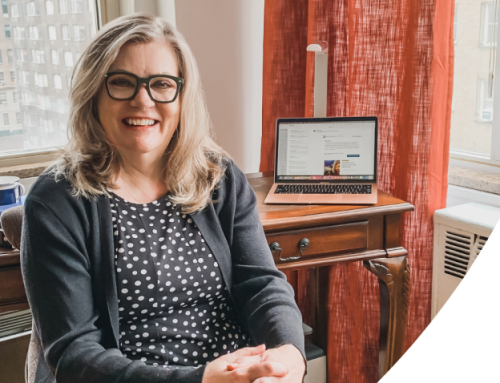In November of 2005, I left the United States and moved to London. I can still remember the site of my house in Massachusetts getting smaller and smaller out the back of the taxi window on that early chilly morning. Although I had been excited and motivated to move, I suddenly had a feeling of dizziness. As we were driving away from my Massachusetts ‘home’, another part of me was seemingly still inside that yellow house, struggling to catch up with the changes my body was making. It was as if ‘me’, or aspects of ‘me’ were still in that house, resisting the change and clinging to memories of my ‘home’. What was to happen to the ‘me’ that planted a Rhododendron bush near the drive on my fifth wedding anniversary? Would I ever have another dining room painted a deep red colour that echoed with hours and hours of friends, dinners and conversation? Where was the ‘me’ that with my husband transformed a back garden of cement and trash into a landscaped patio that allowed for an oasis from the stresses of the day? Was I bringing this sense of home with me or was the imbalance I was feeling the awareness of the separation and abandoning of a known world for another world? And although this new world seemed exciting and new, how was I to know who I was within it?
This feeling of vertigo continued off and on for several years and was usually accompanied by some fear and maybe loneliness. When I went back to America it was most often to visit my son who was in university. As I drove the freeways surrounding this tiny southern town he lived in, I would often feel it again. I can best describe it as if my body was in South Carolina, but my ‘being’, my ‘me’, was still in London. This was confusing to me and made me think about the familiar sense of ‘home’ and my ‘self’ that willingly left my country of origin. I was beginning to refer to London as ‘home’. Although this came with a certain sense of comfort, it was combined with confusing thoughts about this ‘self’ I was creating in a new country. After seven years in London had I been able to make a ‘home’ here? If so, then how did I do it? Was it as simple as living somewhere long enough to create something like a ‘home’ or was it deeper then that, a sense of ‘belonging’ perhaps?
In Swann’s Way, Marcel Proust writes ‘…when I awoke in the middle of the night, not knowing where I was, I could not even be sure at first who I was’. I believe he was writing of the sense of place assisting us in being grounded in our sense of ‘self’, in addition to the memories attached to these places. Just as I felt myself remembering the moments in my home in Massachusetts that felt special, I believe we partially create our definitions and labels of ourselves within what we feel are our ‘homes’. I have facilitated many discussion groups with expats in my work around the idea of home and belonging. We have discussed the difficulties that arise when moving to another country to live. We have puzzled over the contradictory states of mind we find ourselves in. Willingly leaving what most call ‘home’ to inhabit foreign lands challenges our ‘self’ in ways most people don’t anticipate. Losing all sense of ‘familiar’ is challenging from a logistical day-to-day navigation, but these people began talking about something deeper. They began noticing confusion about who they were in this new land. In addition to giving up a home and family, many also gave up careers or jobs, which assisted them in ‘knowing’ what to call themselves. In this new country most of the ‘hooks’ they used to hang their sense of ‘self’ on were stripped away and the loss could be difficult.
This makes me think about the role memory plays in our sense of self. Am I writing this as the ‘me’ I remember myself to be based on all of the labels I attached to myself this morning as I dressed for the day? As I think of my labels and who I would describe myself to be, often the selections are based on what I have done prior to this moment; my memory of my ‘self’. Can this perceived loss of memories we have created in our ‘home’ of origin be what causes the extreme feelings of loss and sense of vertigo? Do we believe we are leaving our ‘self’ in the past until we are able to build up memories in the new place we are to call ‘home’? And is this leaving our ‘self’ part of the pain that we endure as we find ourselves lonely and sometimes lost in our new homes? When working with clients I believe this is where the fascinating process begins. As we begin to understand and make explicit our own sense of what ‘belonging’ and ‘home’ is, and how we may cling to the memory of this, we can gradually begin the process of allowing for new memories into our definition of ‘home’ and ‘self’. As our definitions change, we may begin to allow for a more fluid and temporary sense of attachment to these concepts of ‘home’, and ‘self’.
It is one thing to write about ourselves as fluid and temporary and it is quite another to suffer through what some people describe as an incredible lonely and challenging process of not knowing who they are. There is definitely a sense of loss described by people when they try to describe what may be missing when they struggle in new environments. Homesickness is a word used at times but when asked to describe what home is I have received several different types of answers that don’t always correspond to a physical structure:
‘my mums cooking’, ‘a stuffed owl my husband gave me…it goes everywhere with us and brings along a sense of home’, ‘my books’, ‘my things, my furniture I picked out with my partner’, ‘I think of the activities I like to do with my husband, sailing, hiking’.
Clearly ‘home’ doesn’t always mean a brick building or a red dining room to individuals when they struggle to define the concept. It seemed as if it is described here as more of a sense of something that has meaning. It may be food, such as my mums cooking, but it seems to be said in a way that generates a feeling or an emotion that makes one feel something. But what do we feel? What is happening when we think of ‘home’? Is it always a good feeling or can it feel restrictive and something we feel we need to break free from? Can the roles we have played thus far in our life as daughter, sister, brother, friend begin to feel restrictive and dull? Can a more flexible approach to the concept of ‘home’ lead to more open definition of a ‘self’? Within the challenge of moving to another country, quite possibly there is an opportunity to shake off these assumed roles and to incorporate additional and/or more portable senses of our ‘selves’.
Holding on to prior definitions of our ‘home’ or ‘self’ is often comforting when challenged by so much change as an expat. However, allowing for a more flexible description of who we are and where we live and call ‘home’, can help create new and interesting aspects of our ‘selves’ we weren’t even aware existed. Creating new memories and embracing difference and change can be difficult but is essential for ones adaptation to another country. Allowing for our attachment to a ‘home’ to gradually grow and change will create the new memories we need to feel ‘there is no place like home’.
Dr. Bonnie Wims
Counselling Psychologist
www.bonniewims.com




